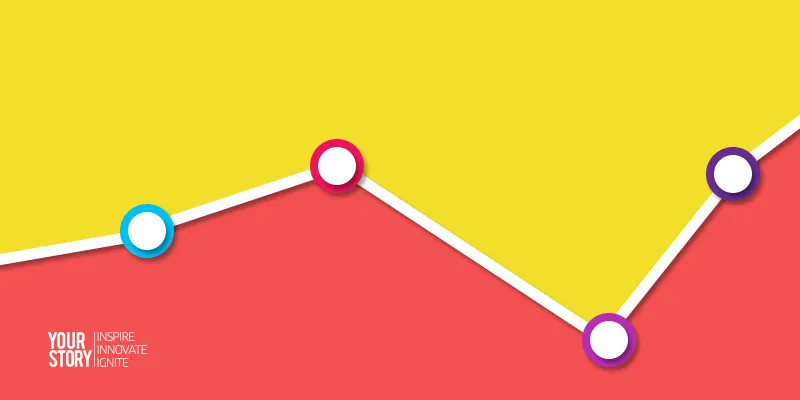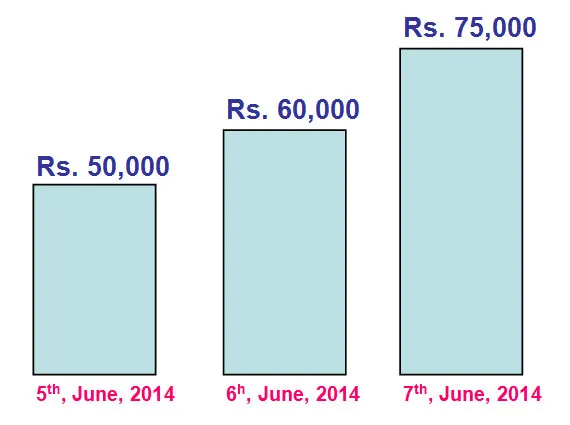From Analytics to Predictive Analytics: why is it important for your business
This article has been written keeping in mind the non technical users.
What is Analytics?As per Wiki, “Analytics is discovery and communication of meaningful patterns in data.” If you didn’t get this, let me try and illustrate this with an example of a retail store.

Let us say we have an imaginary Retail Store ‘ABC Co’. It sells all kinds of groceries, vegetables, fruits, and consumer goods. ABC Co has a retail application. When you buy your stuff in any of the large malls, they usually have the items to be purchased with a bar code (which has stuff like name of the item, price etc. And when you walk into the billing counter, they will have a bar code reader machine which will read the information in the bar code. This information gets entered into the retail application.
Now the retail application will have records such as sale of the number of items, their category, and amount etc.
At the end of the day if the owner of the ABC store wants to know how much worth of goods has been sold, he should be able to pull that out from the retail application using the Analytical tool. That is a simple example of discovery of data.
Now if the owner wants to know the sale for the last 3 days, and wants to visualize that in an intuitive manner, it is possible again through the Analytical tool.
Below is an example of Bar Charts, where the amount sold daily is represented as Bars.

Seeing the above report, the owner is able to do some analysis. He observes that 5th June happens to be a Friday and 6th June happens to be Saturday, so he can correlate the increase in sale as expected due to the weekend crowd. We all do our purchasing during the weekend, isn’t it? This is a very basic example of Analytics tools.
The above examples are of Descriptive analytics.
Now the owner wishes to understand how the sales for the weekend were in comparison to the same last year (‘Comp sales’ in retail parlance). He observes that while the sales looked good to start with, there was actually a 15% drop as compared to last year.
Next, he wishes to understand if there were specific product categories that were driving this decline. Adding product categories to his analysis reveals that one specific category has been impacted the most. Having understood the decline in sales for this product category, the owner may next want to understand the impact on margin, and so forth. This is an example of Diagnostic Analytics.
Being an IBMer, I should not be going to the next topic unless I mention that we have a tool for Analytics (Descriptive and Diagnostic) called Cognos BI.
However, the above examples are all post-facto analysis, i.e. the owner is holding up a rear view mirror to understand what had happened. Now what if the owner would like to predict data for the future?
What is Predictive Analytics?
Predictive Analytics will take the historical data and predict the outcome in future using Statistical techniques. The historical data that is accounted by Predictive Analytics can vary from a year to a few years. Continuing from the example above, if the owner of ABC Stores wants to know what would be the amount of his goods that would be sold tomorrow given that he is on 8th June 2014, it should be possible with Predictive Analytics tools.
The Predictive Analytics tools would take into account factors such as holidays, weekends and will come out with the projected sales.
I personally feel this is a great area to be in. And if someone is planning to start a company in Predictive Analytics or have a career in Predictive Analytics, it definitely has a great potential.
Here are some Use Cases which give the possibilities of using Predictive Analytics in real life.
I have taken examples of Predictive Analytics, since they are not as well-known as Analytics Use Cases. IBM again has a tool for doing Predictive Analytics called SPSS.
Retail: Retailers are using Predictive Analytics tools to determine the demand in the coming days and based on that how much inventory they should hold. Imagine in the above ABC store case, if the owner knows that on the following day, there is a high probability of higher sales of umbrellas, would he not keep additional stock of that?
Below are some Use cases possible with Predictive Analytics across various industries.
Police: Based on the past historical data of crimes in a city, the city police is using Predictive Analytic tools to predict the possibility of a crime happening in a certain locality. Heard or watched the Fictional serial ‘Person of Interest’ where they predict a crime happening by a person? Given the advancements in this area, it could be a possibility as well in the future.
Industry: Manufacturing companies maintain the data of the maintenance schedule they carry out for their machines, they also have the data related to the breakdown of the machines. Using these historical data, they predict the probability of a breakdown of a machine in the coming days or months. If the probability of a breakdown is high, they go about changing the maintenance schedule to ensure the breakdowns are at a minimum.
Utility: Another interesting use case is in the water demand forecasting. Usually treated water is pumped from reservoirs to overhead tanks. The overhead tanks supply water to the end consumers. Predictive Analytics tools can be used in cities to determine the demand for water the next day.
In order to meet those water demands, pumps would push the required water from the reservoirs to the overhead tanks. It is also possible to go an extra step of determining the variable electricity prices for the next day in terms of which time of the day would the prices of electricity be the lowest. And factoring that, a schedule for the pump is generated so that the demand for water is met at the same time ensuring electricity prices is the lowest. The last bit has got an optimization problem solving to it as well. But I just wanted to illustrate the possibilities.
Here are some of the companies we are working with towards integrating their Product or Platform on IBM Predictive Analytics (SPSS) solution.
Algo Engines is a wind turbine portfolio management and performance improvement solution. Algo Engines uses the data generated by a turbine to help wind turbine owners/operators/investors increase turbine performance. They are integrating with SPSS to leverage data mining models for forecasting and predictive maintenance of Wind Turbines.
D2K Technologies has solutions for providing MIS reports for Banks. They are developing an application for complying with the Basel II specifications of Reserve Bank of India. The application would be to calculate the Probability of Default of a Loan applicant to a Bank.
Aaum Analytics has a customizable platform geniSIGHTS that enables the business to get analytics as per their requirements with pre-canned advanced analytics solutions that fit their common business needs. They are now developing a Predictive Analytics platform to solve the business needs of corporations ranging from travel & logistics, finance, insurance, health care, FMCGs, retail, and telecom.
iCast is developing a Predictive Analytics Solution for Life Sciences, where it would be possible to segment their Patients / Customers (High Value items such as Medical Implants ) on their past transactions and demographics (eg- Age, Sex, Income, Region, Disease etc). Post the segmentation it would be possible for the Life Sciences company to have a better understanding and predict their behavior on parameters such as price changes, packaging etc.
So if you are startup (as per IBM parlance < 5 years, have a product or platform for Enterprises, and are privately held) and interested in enabling it with IBM technologies. You can apply under the Global Entrepreneur Program and tweet to me at my Twitter handle.
Thanks to Prasanna Keny for reviewing this article







